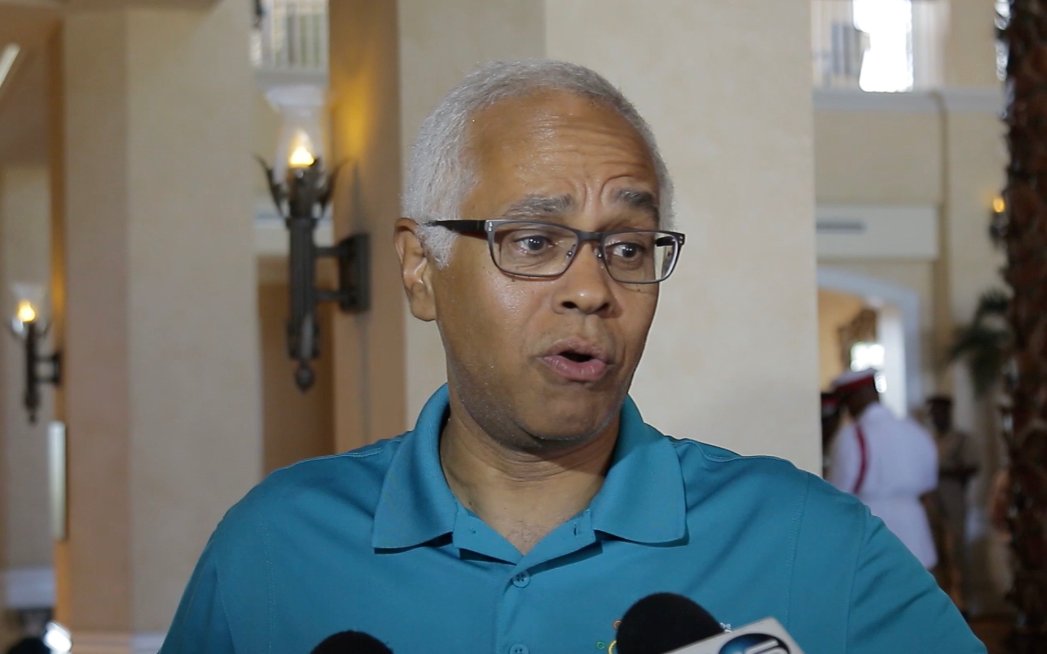The government can look forward to collecting a new stream of income in the coming months as the aviation ministry prepares itself to begin charging international carriers for flying through its airspace, according to Dionisio D’aguilar, Minister of Tourism and Aviation.
D’Aguilar confirmed to Eyewitness News Tuesday that his ministry is in the is the process of formulating a Request for Proposals (RFP) from interested companies who can assist the government with monetizing the country’s airspace.
“I want the public to know that is very much moving forward and those negotiations are going extremely well,” D’aguilar confirmed.
He revealed that his ministry has been engaged in dialogue with the Federal Aviation Administration (FAA) to finalize how and when the government will begin charging for carriers which utilize the country’s airspace.
D’aguilar held an audience with the FAA in early November.
“Just two weeks ago I met with the FAA in Miami for a second time and we are moving quite smartly along with an agreement where they would continue to manage our airspace.
“Our airspace is managed by the Americans and in order for us to change who manages our airspace we have to get the blessing of the International Civil Aviation Organization (ICAO) and they are not minded to change that. They like the United States (U.S.) managing our airspace and at this time they are not minded to change that.
“But, what we are going to do is secure the right to charge the overflight fees and we will pay the Americans to manage our airspace on our behalf.
D’aguilar is mindful that the overflight fees will produce a marked increase in government revenue.
“That seems to be a wonderful compromise situation where it allows us to charge overflight fees and the Americans will continue to manage our airspace,” he opined.
“Initial indications are that it will bring in monies, but I am not going to commit myself to exactly how much at this stage because I don’t know.”
The aviation minister is hopeful that the negotiations will be wrapped up before year’s end.
“We are about to put out an RFP for a company to help us monetize our airspace. There are companies that specifically handle this for countries who are taking over control of its airspace. I hopefully will get that done this year,” he said.
The U.S. currently manages 75 per cent of Bahamian airspace, while the remaining 25 per cent is managed by Cuba.
D’Aguilar gave no indication as to how much money the country spends on paying those countries to manage Bahamian airspace.
He also gave no indication as to when The Bahamas might possibly shift the mindset of the ICAO to allow the government to fully manage the country’s airspace.






